
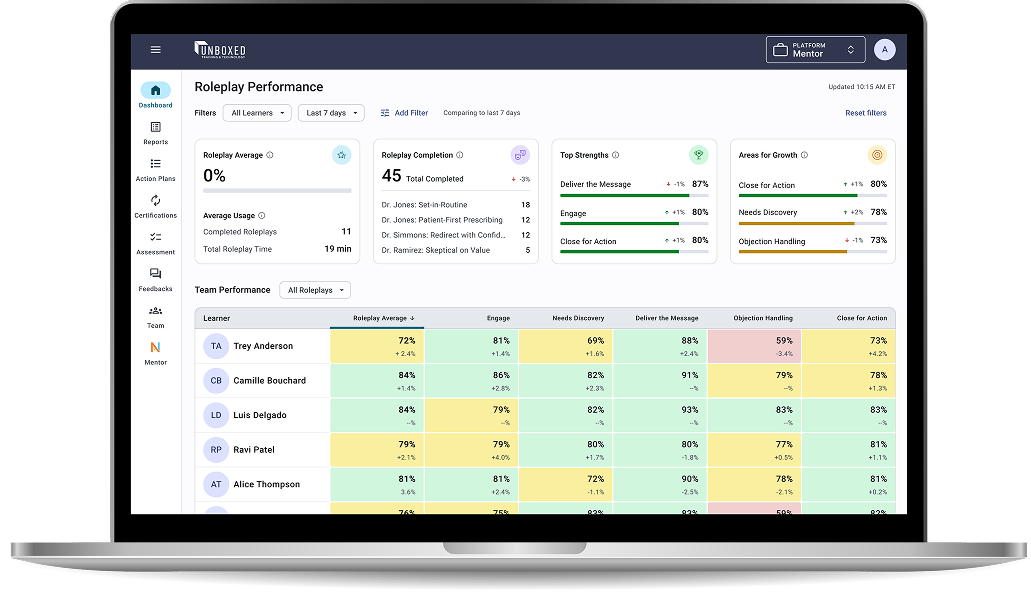
Unboxed is a recognized industry leader providing training solutions globally. With recent advancements in AI, they are launching a new product that focuses on AI-driven roleplays designed to help employees develop their skills. This innovative product generates detailed performance data from roleplays, which managers can use to support their teams effectively.
Our project focused on designing a dashboard that enables managers to gain actionable insights into their team’s roleplay performance, allowing them to manage employees at both the individual learner and team levels.
Activities and deliverables
User research, Prototyping, Design system, UX support
Who we worked with
Chief Delivery Officer, Product Manager
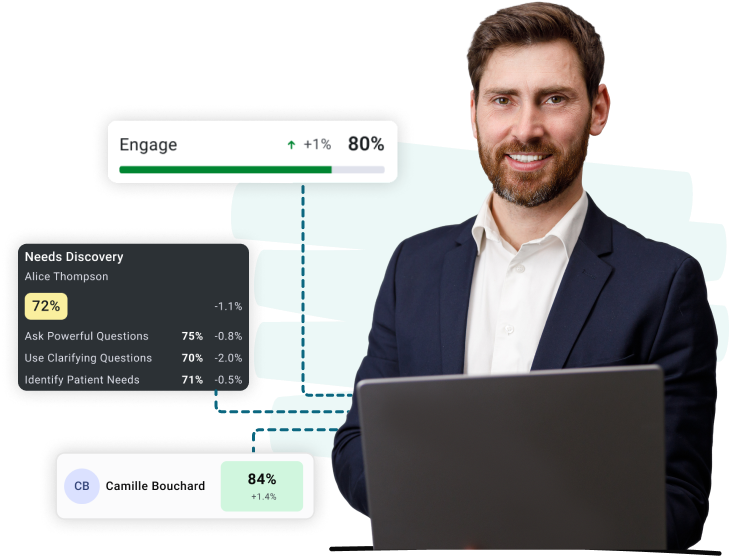
Present comprehensive data in a clear, usable way
The dashboard must present a wide range of detailed roleplay metrics on a single page without overwhelming the user.
Communicate performance changes clearly
Managers must quickly and accurately understand week-over-week changes in roleplay performance.
Implement tools that enable fast access to information
Managers require a flexible solution to filter data, spot trends, and surface relevant insights from large data sets.
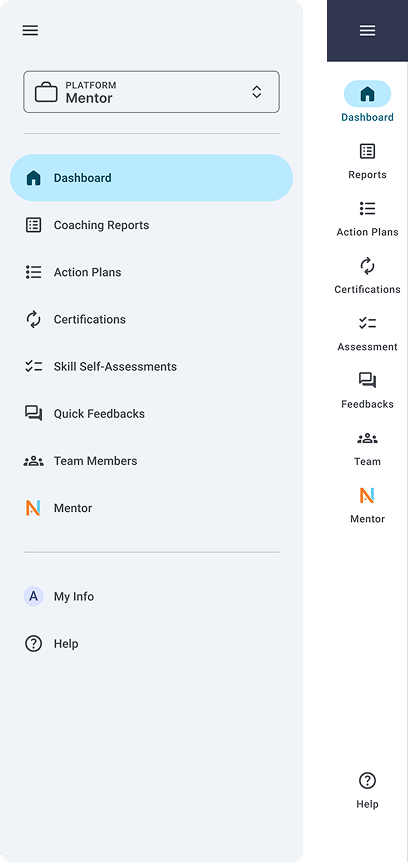
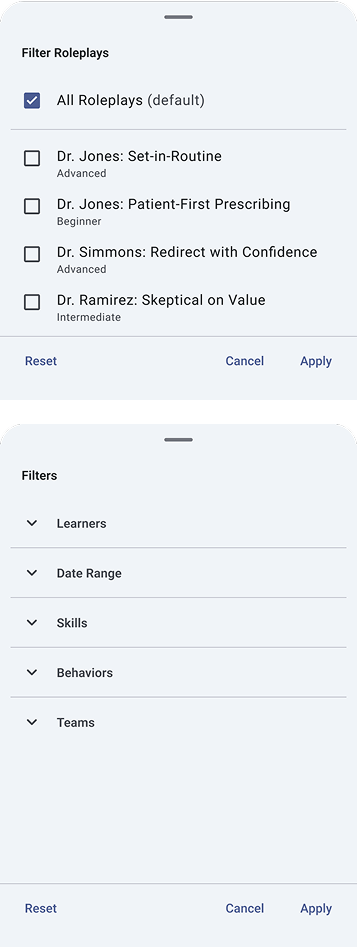

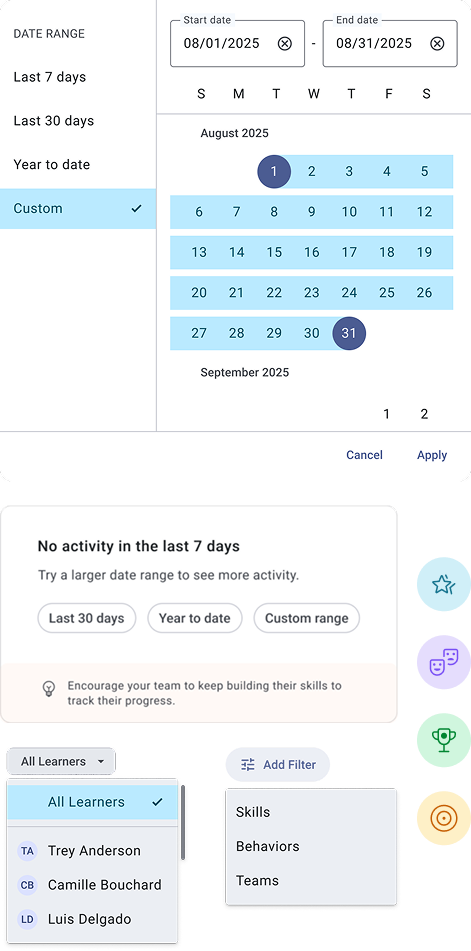




Purpose of our research
After understanding the business requirements, goals, and available user data, we focused our research on:
Studies

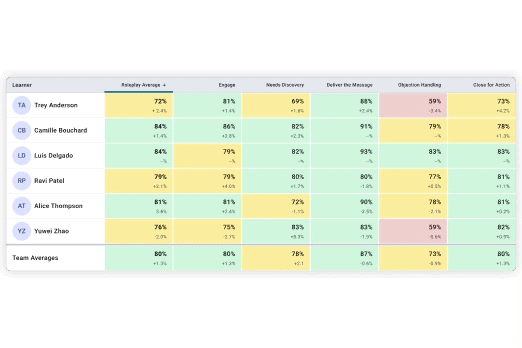
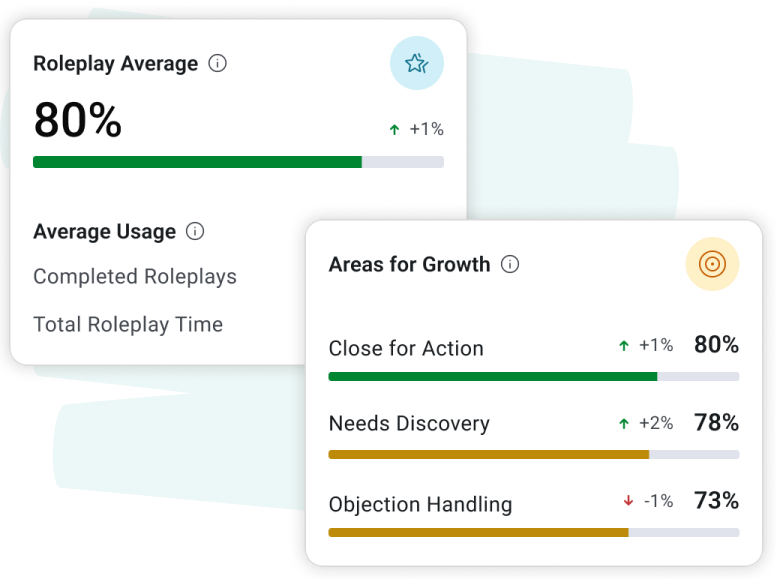
Instant insights empower decision-making
The top row of the dashboard highlights key performance takeaways, like overall performance, top and bottom skills, and team activity, in one place. By showing this information upfront, managers can spot trends, progress, and prioritize actions without digging into detailed data or running reports.
Visualizing trends over time improves manager engagement
Clear visual indicators tracking week-to-week performance shifts, paired with current scores, help managers quickly spot progress or areas that need attention. Managers get a better picture of how roleplay training is impacting sales tactics and techniques for their sales teams, which also aids in more informed coaching decisions.
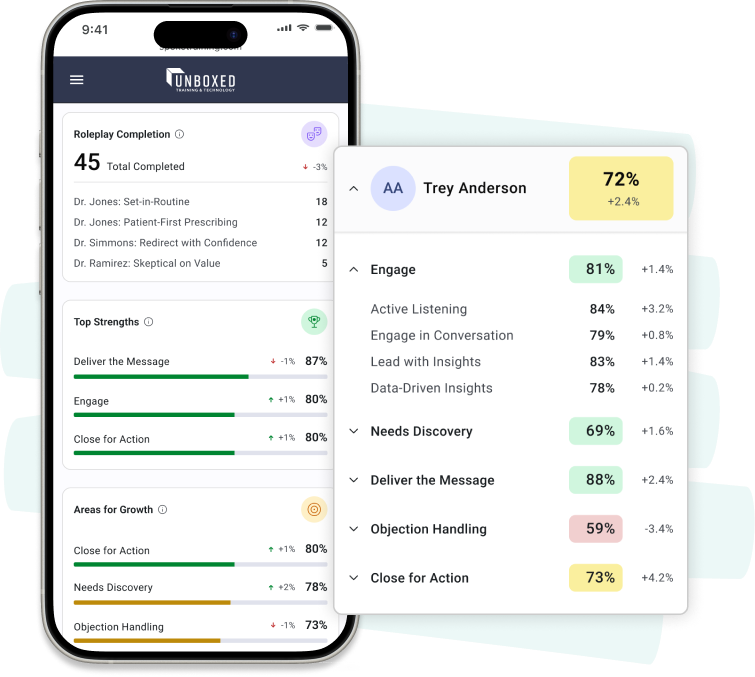
To showcase the dashboard’s capabilities and gather early feedback, we developed an interactive prototype that was presented at a major industry conference. This hands-on demo allowed attendees, including potential clients and internal stakeholders, to explore the dashboard’s insights and functionality firsthand. The prototype effectively communicated the value of the AI-driven roleplay platform and sparked valuable conversations that informed further design refinements.
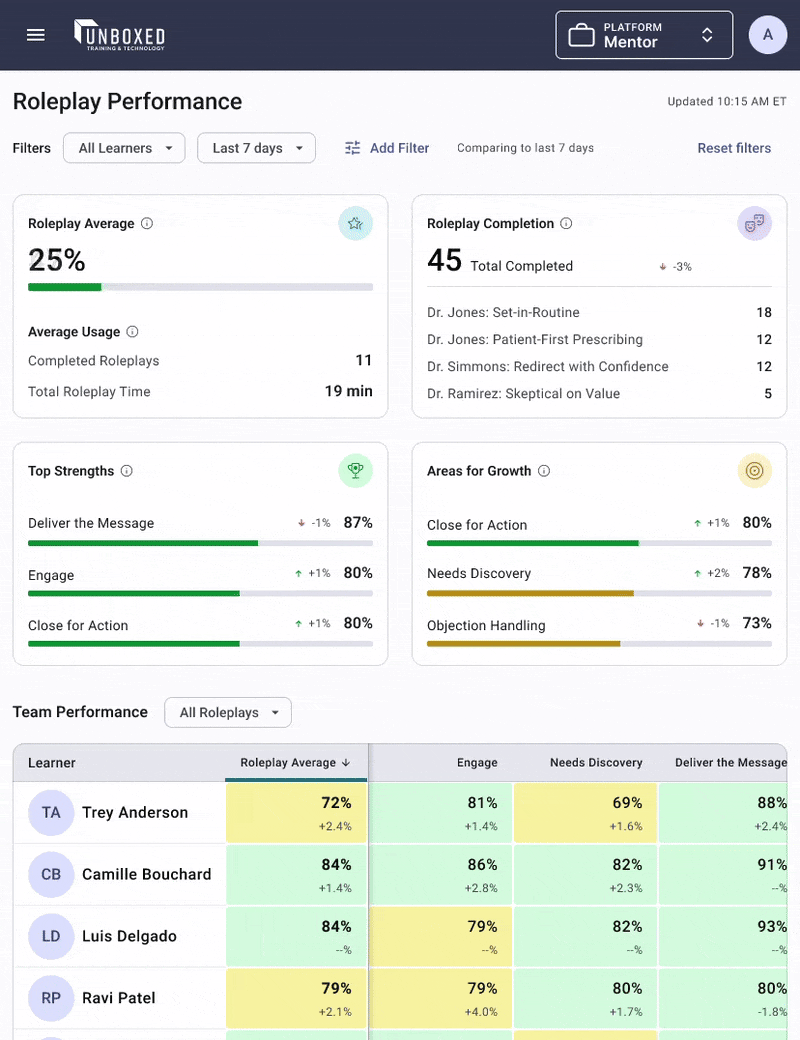
UX Team transformed a legacy application into a robust, centralized data management system designed for efficient data uploads, improved data control, and API integration. Our solution introduced automated data checks and real-time validation to ensure compliance with California’s heavy metal testing regulations. By modernizing system functionality, we streamlined workflows and established a scalable foundation for future enhancements.

Contact us for help with your enterprise software design.
